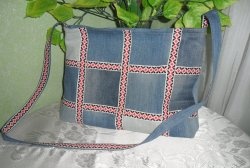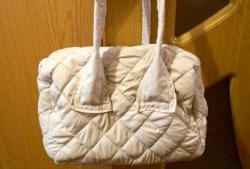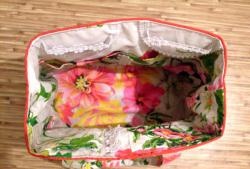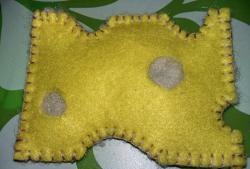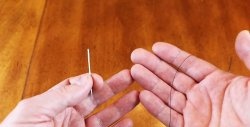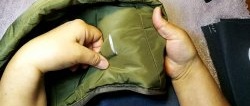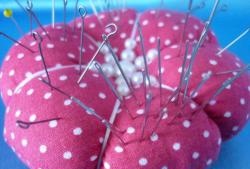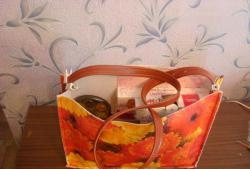How to sew a felt bag
The bag is easy to make and has a simple cut, so sewing it will not be difficult. Sewing by hand will take no more than 2 hours, but with a sewing machine you can do it in 10-20 minutes.
Thick felt is suitable as a material, which allows you to minimize the time spent on processing the edges from sprinkling. If there is no felt, you can replace it with any synthetic analogue.
The bag shown in the example is made from a thick synthetic rug, which was purchased at a well-known store with a fixed price.
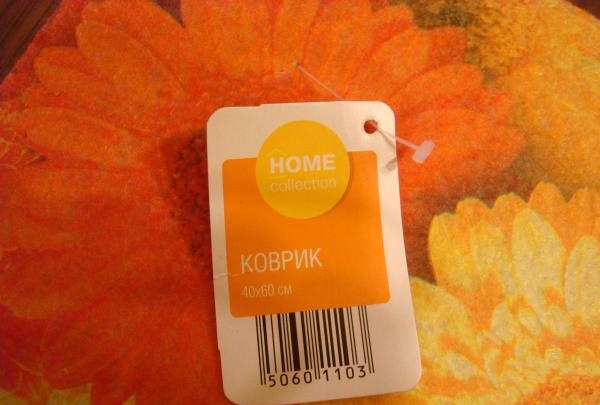
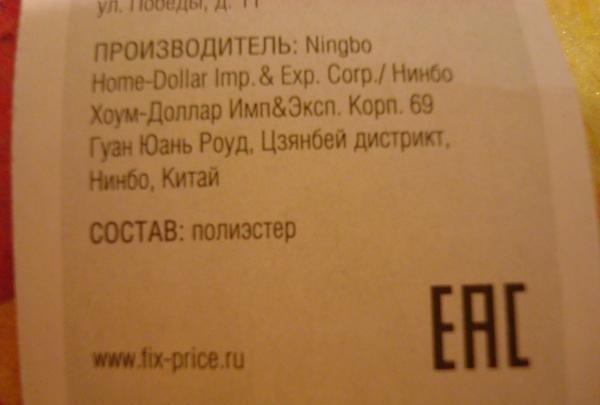
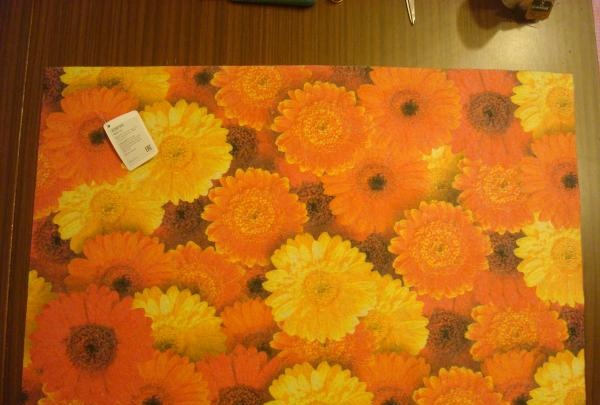
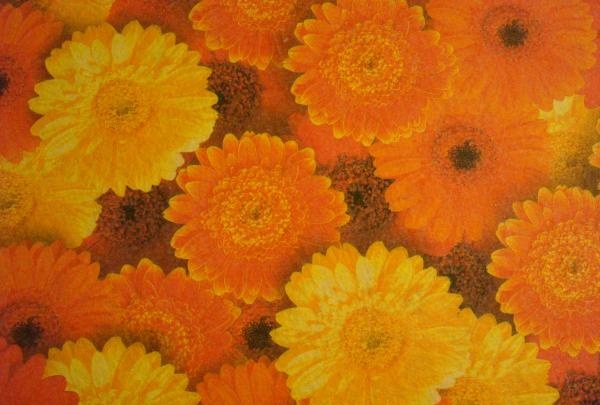
In addition to the material you will need:
a ruler, a thimble, a sewing machine or a needle, clothespins or needles for clamping the material, a pencil or soap, threads that match the color, scissors for the material, an old belt as a future handle or you will have to additionally sew (knit) it.
The mat used had dimensions of 40*60 cm, which gave the bag a medium size.
Actions:
1. You need to fold the material in half so that the ends match. The wrong side should face inward. For convenience, it is better to fix the edges.
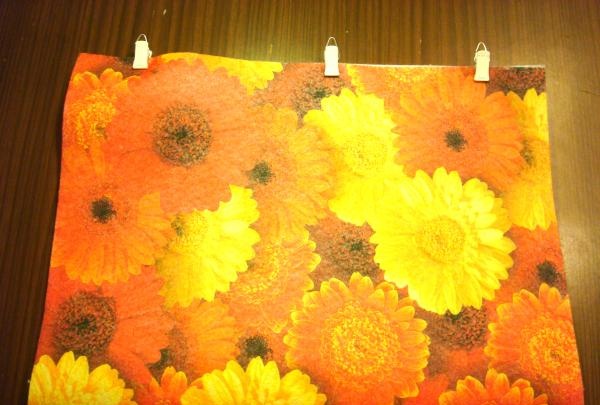
2. You need to decide on the width of the future bag and cut strips from the edges of the material for the side parts and bottom.In the example, strips of 7 cm were used. 7 cm were measured in the side edge, and 3.5 cm in the lower part, on the fold, since when straightened the strip turns out to be 7 cm. When cutting the strip from the bottom, it is better to secure the material with clothespins.
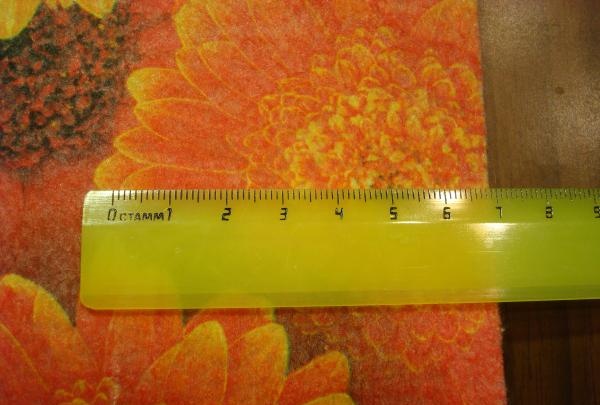
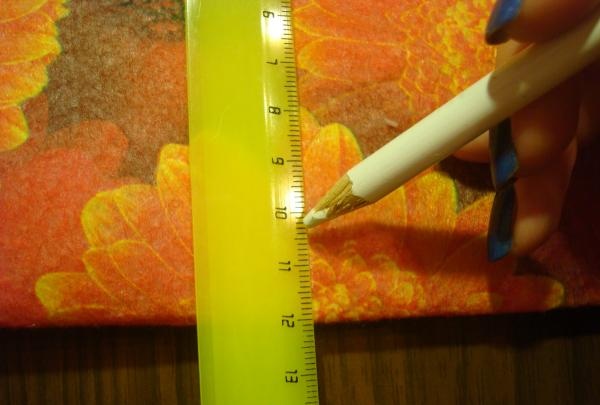
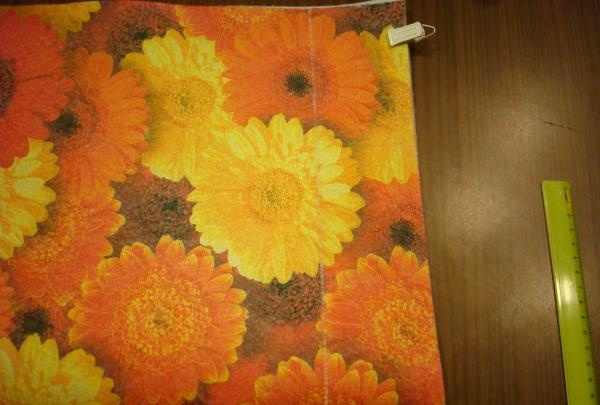
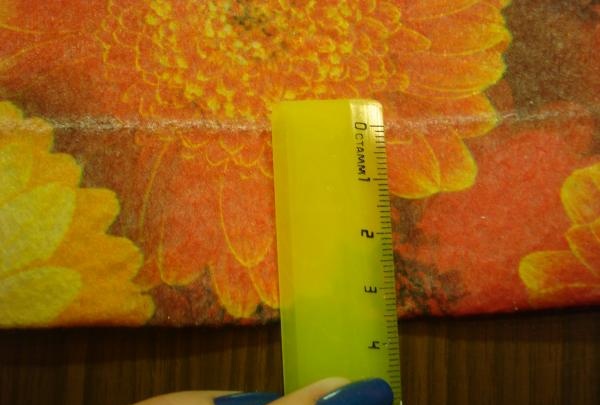
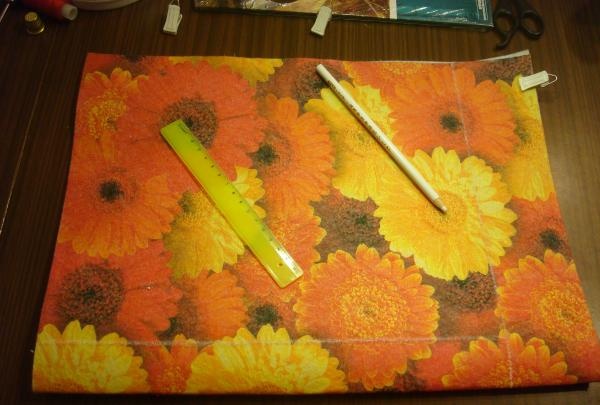
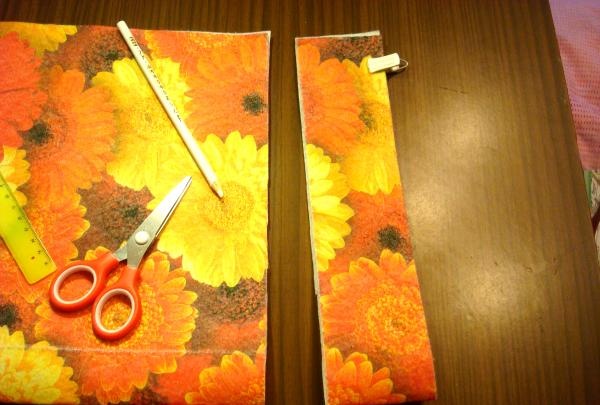
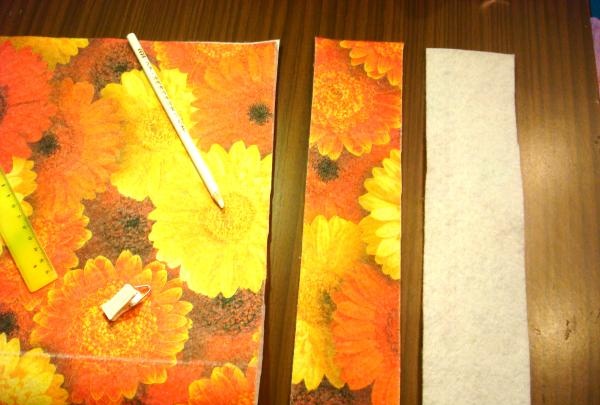
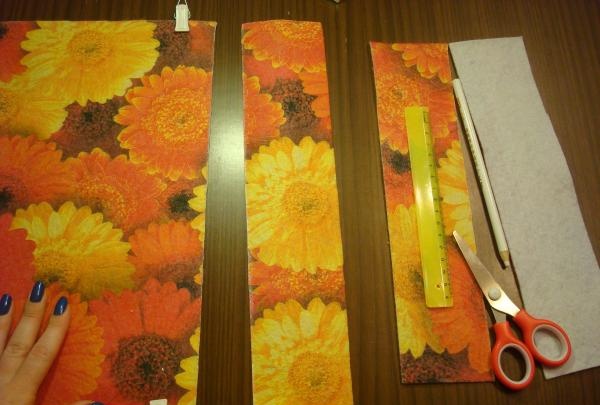
3. At this stage, the side parts are sewn on. The strip is applied to the material so that the edges meet on all sides as in the photograph.
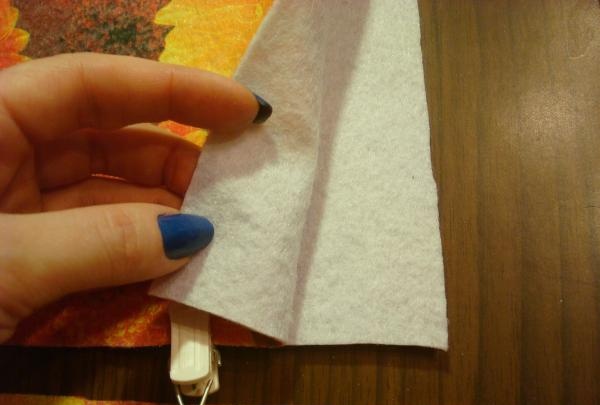
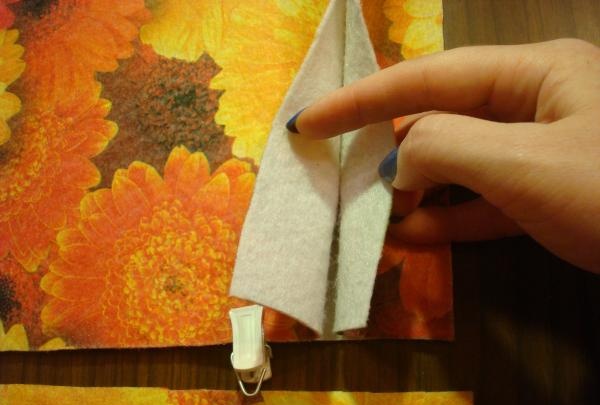
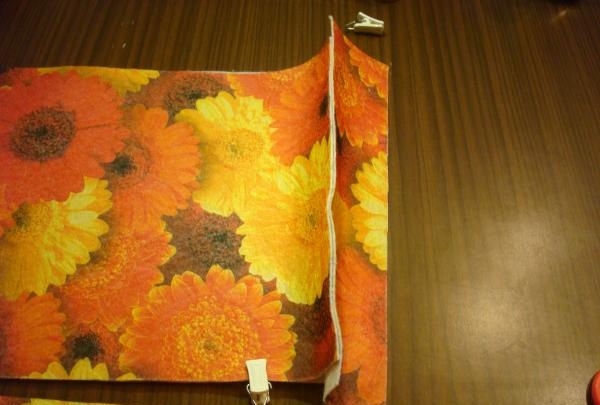
The parts are fixed with clothespins.
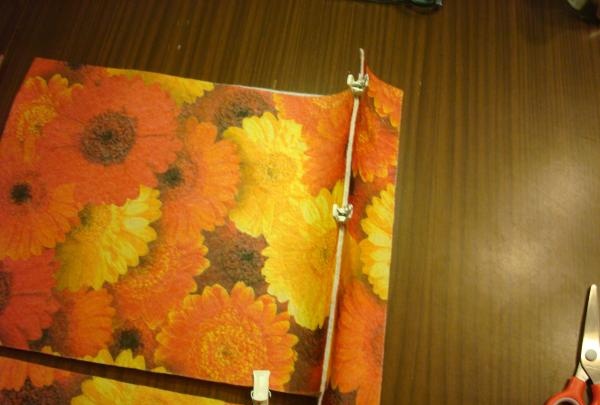
4. Sew the pieces together.
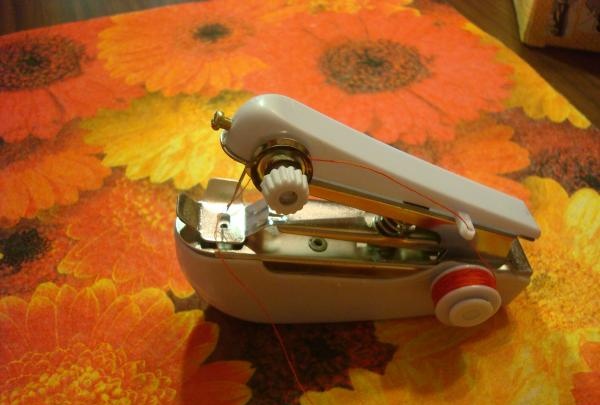
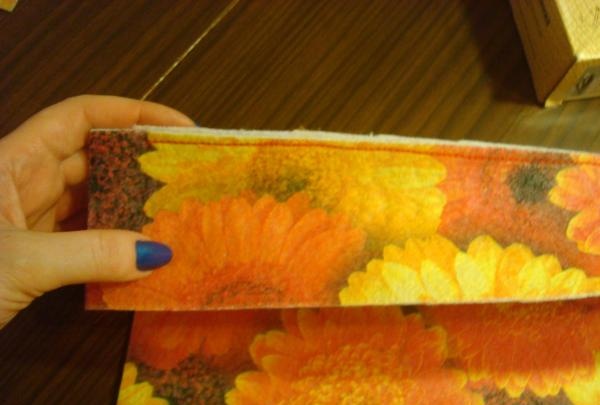
5. Similarly, secure the material with clothespins and sew the parts on the other side.
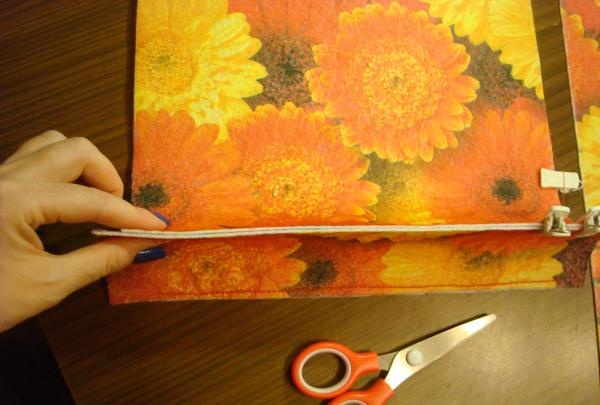
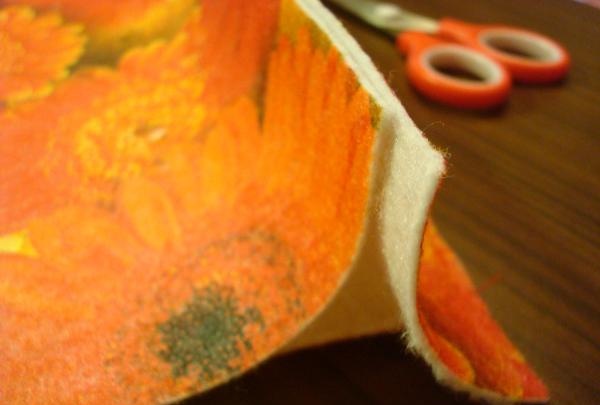
If your machine breaks down while sewing parts, it’s not a problem. You can continue working with a simple needle and thread, using a special hand stitching technique that imitates machine stitching.
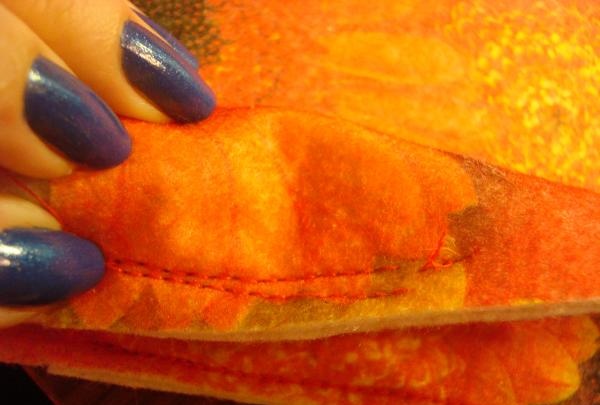
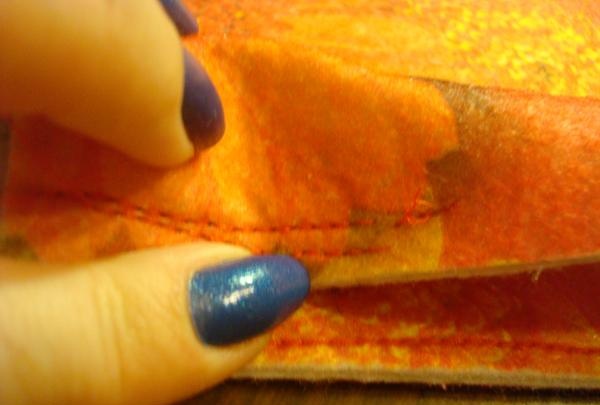
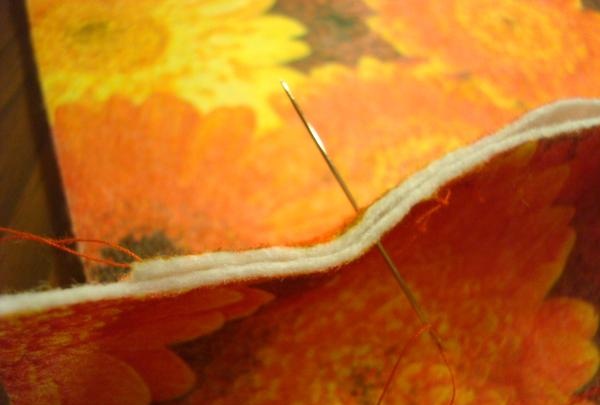
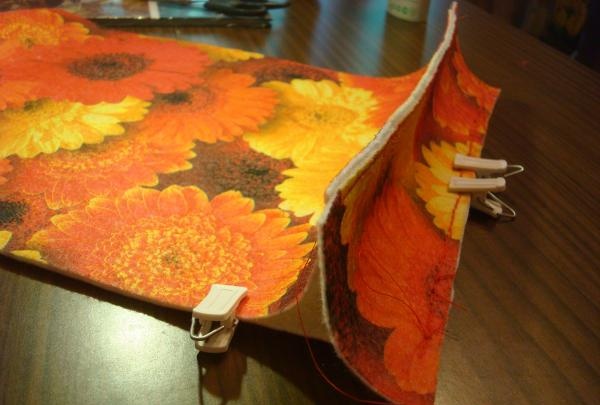
6. On the second side, the parts are sewn together in the same way.
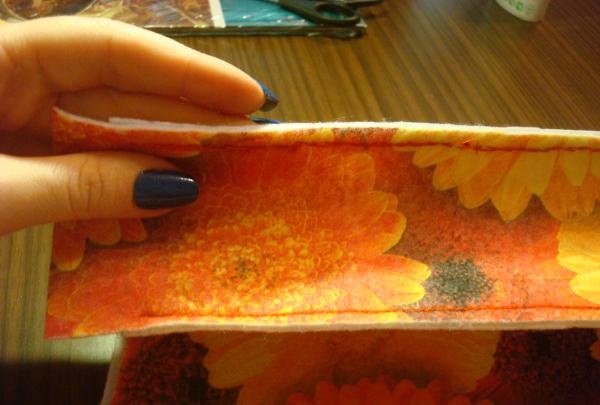
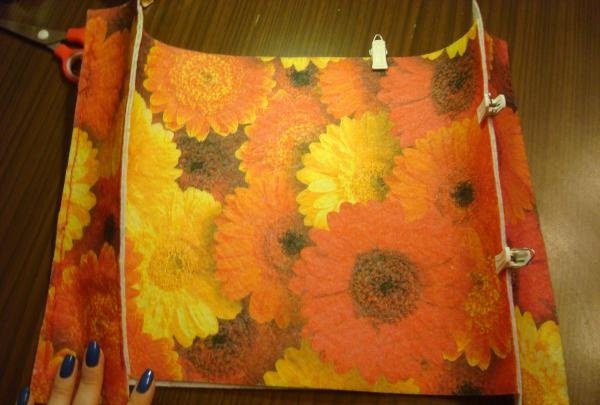
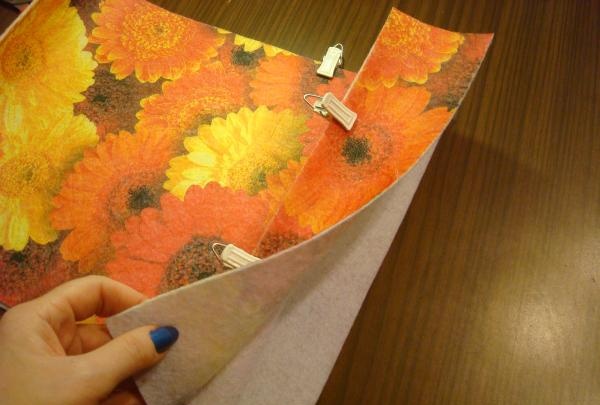
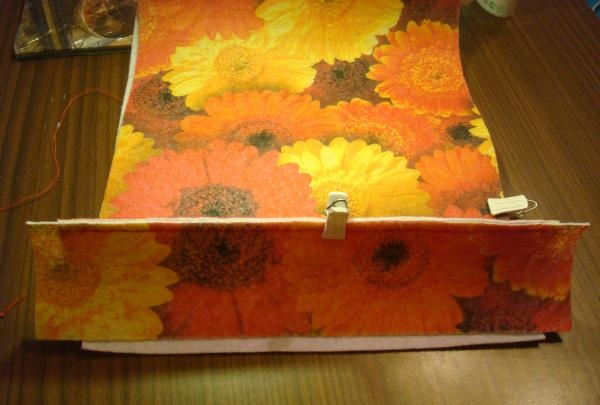
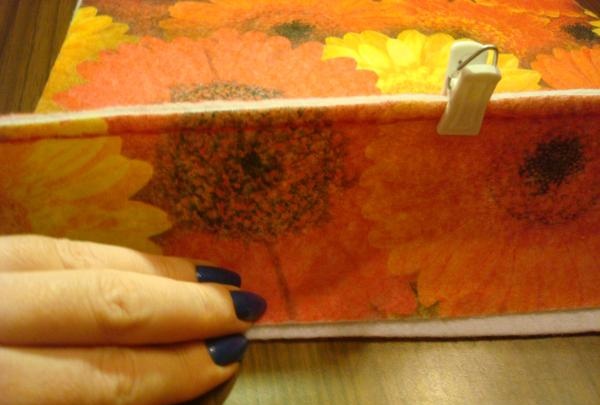
The result was a box without a bottom.
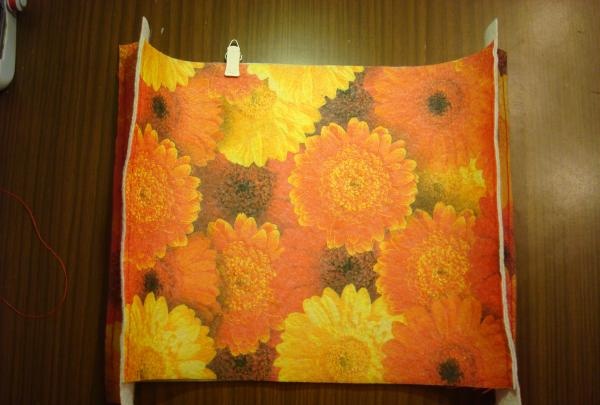
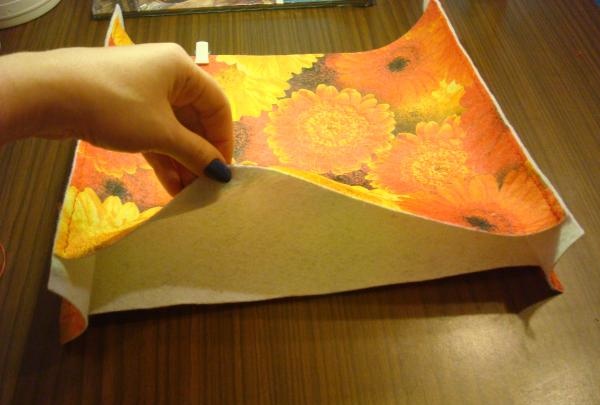
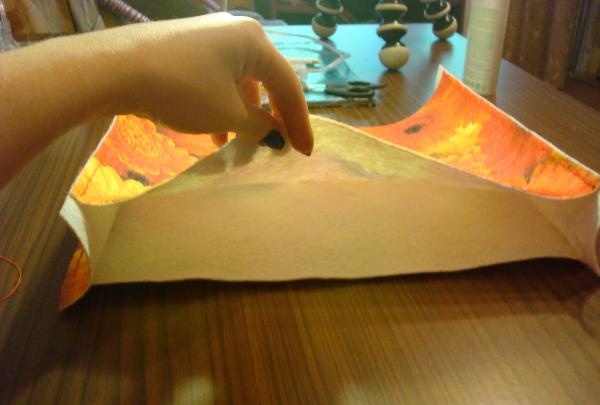
7. Now you need to sew the bottom to the bag using the side parts technique.
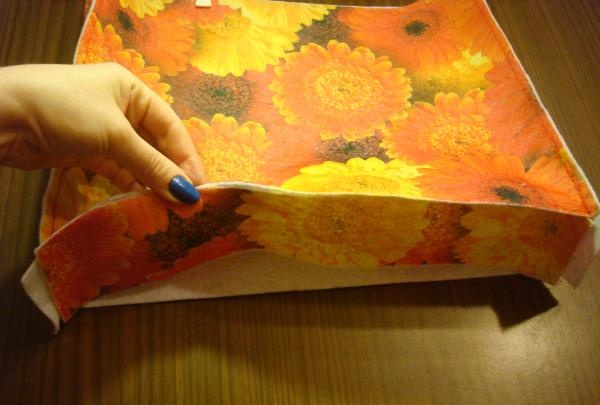
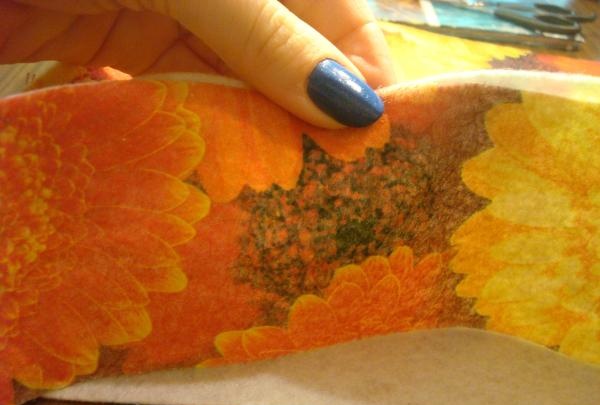
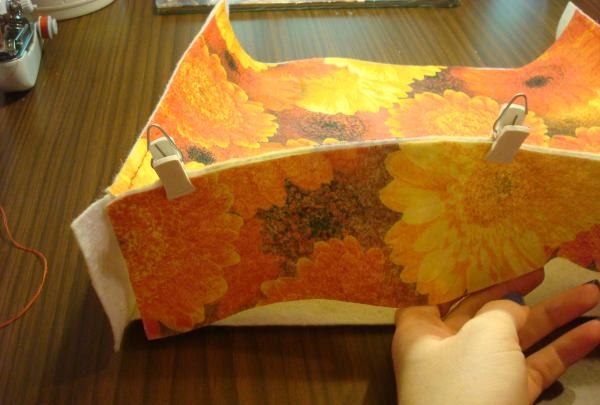
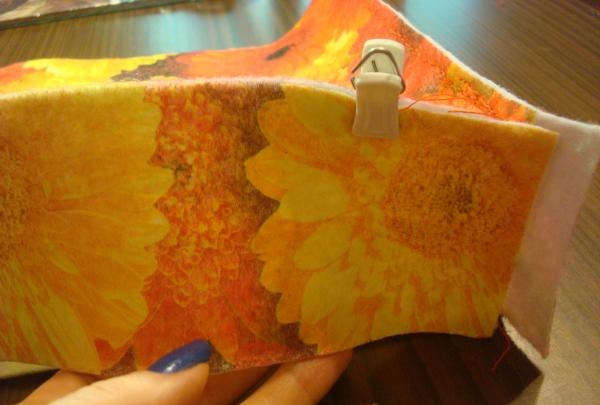
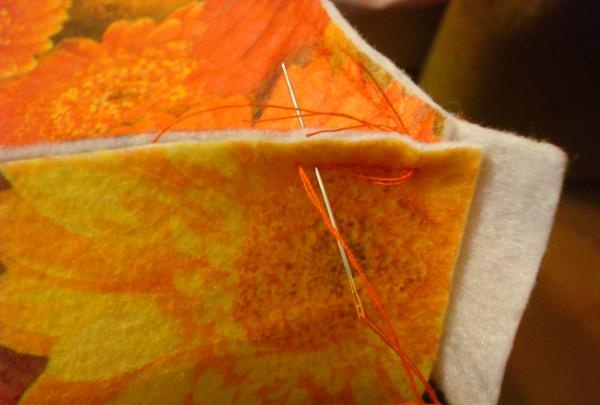
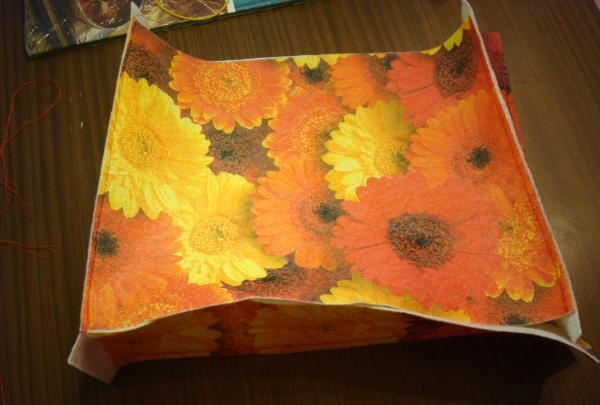
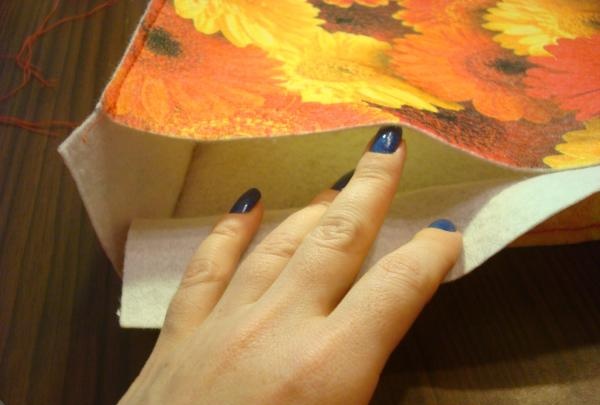
Thanks to the dense material, the bag holds its shape well.
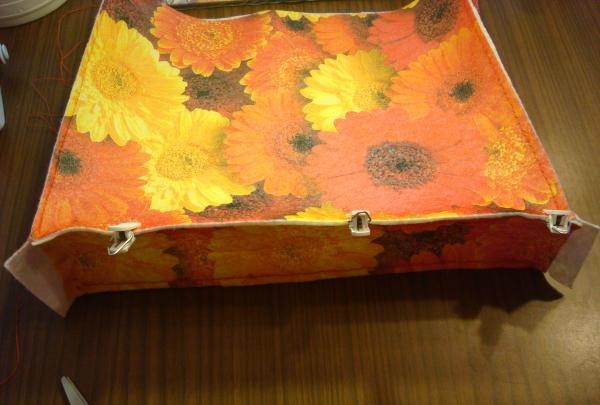
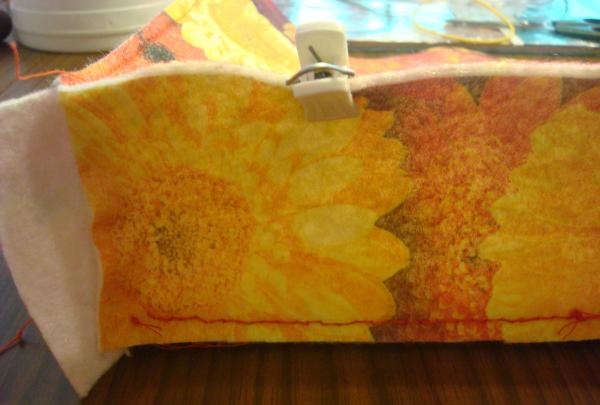
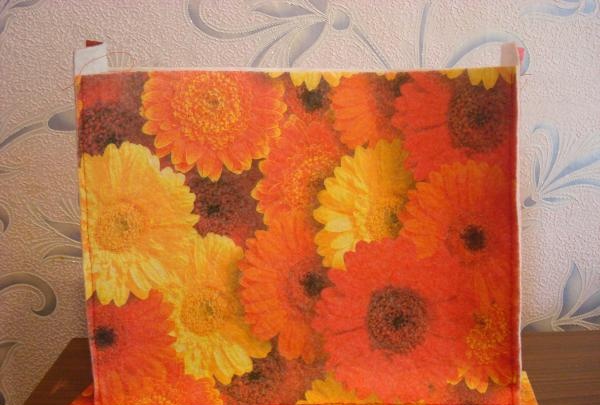
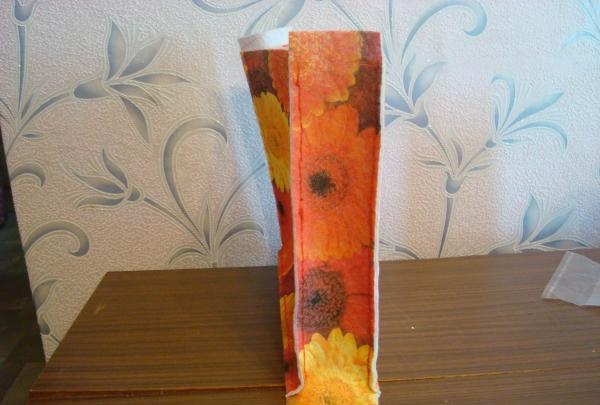
8. There are extra centimeters of fabric left on the sides that need to be folded and hemmed if this is the bottom of the bag.
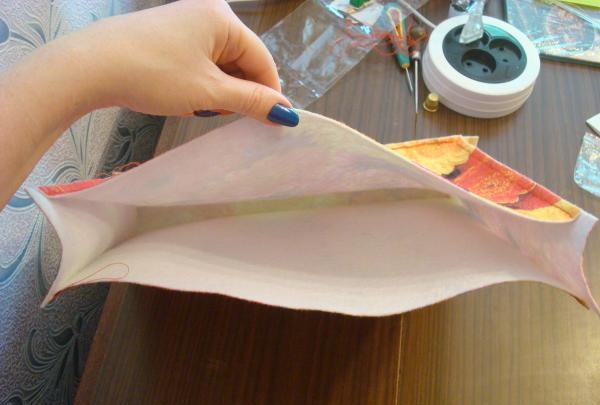
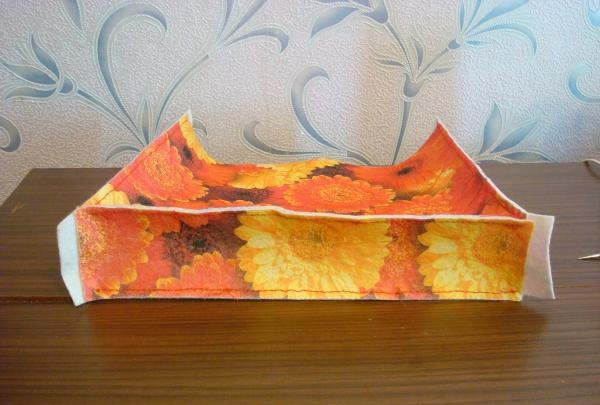
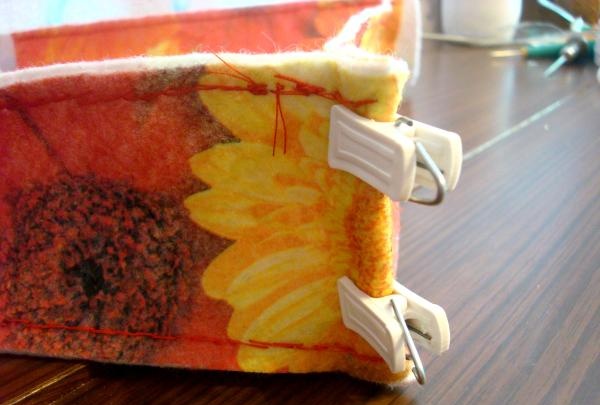
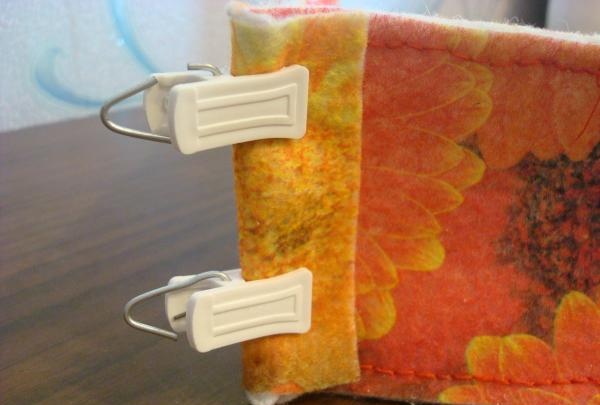
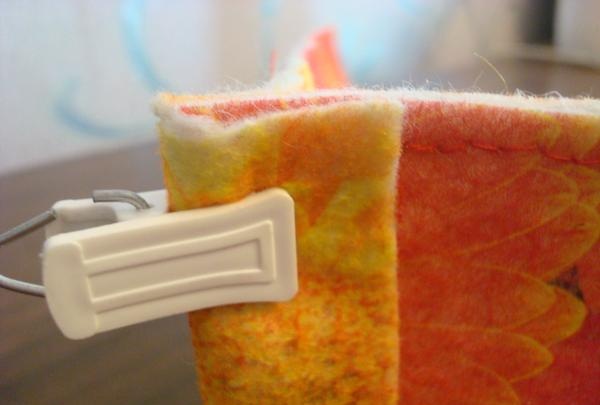
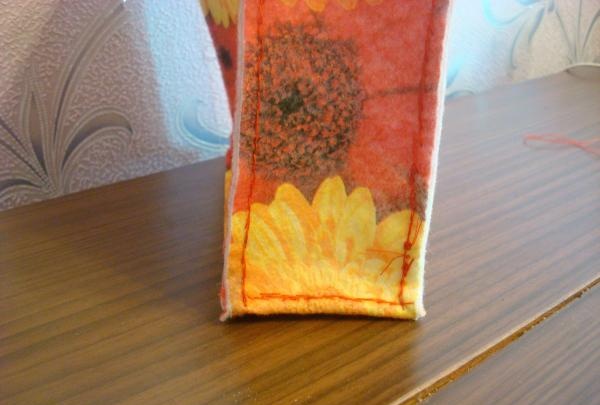
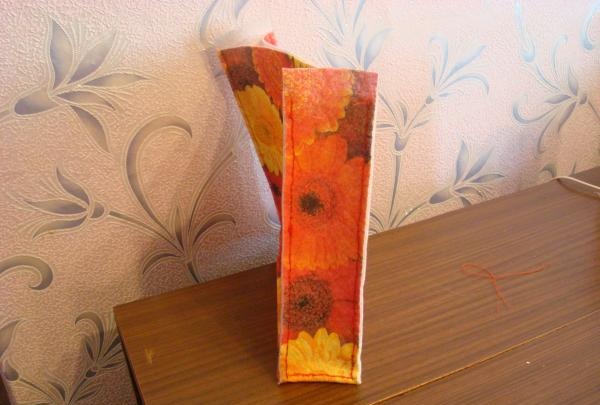
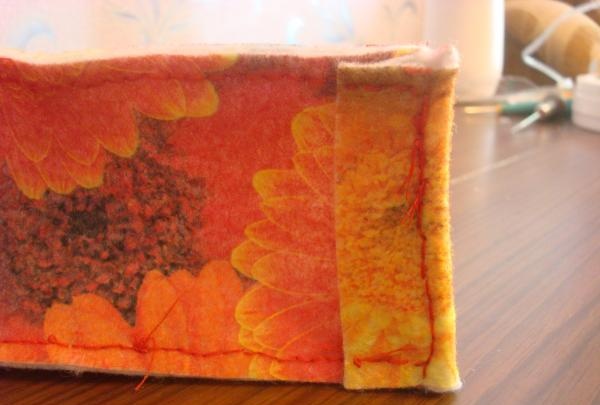
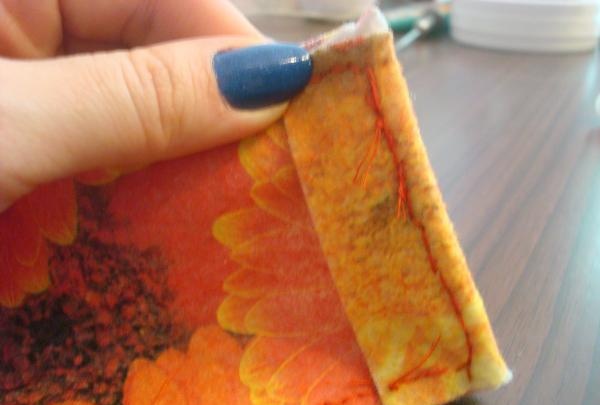
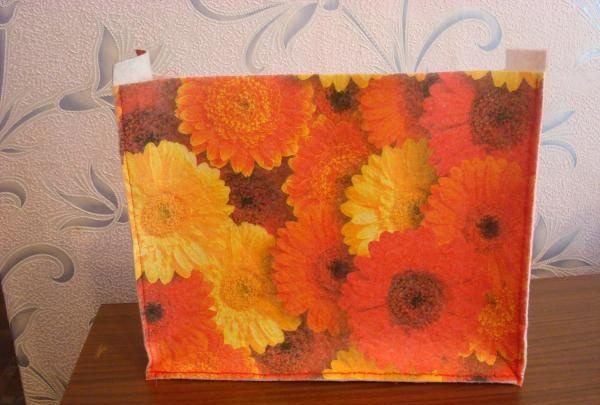
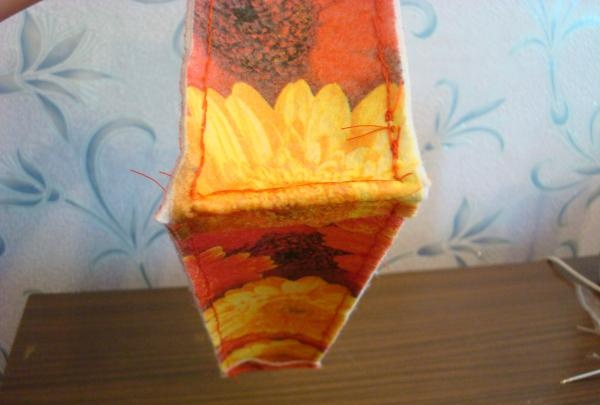
You don’t have to bend the top, but simply cut it off. The material still does not require overcasting, because it does not fray.
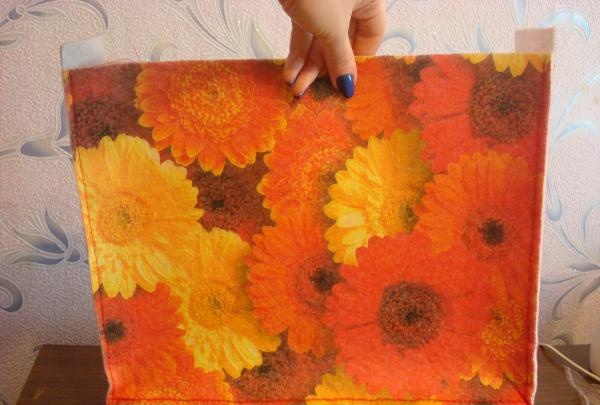
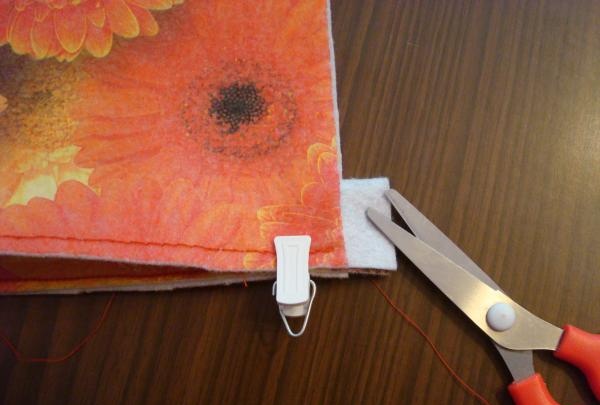
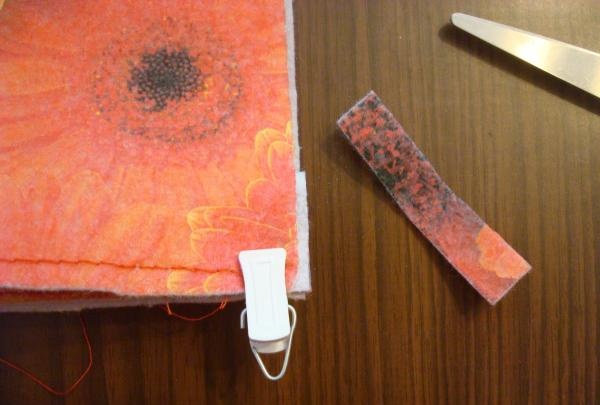
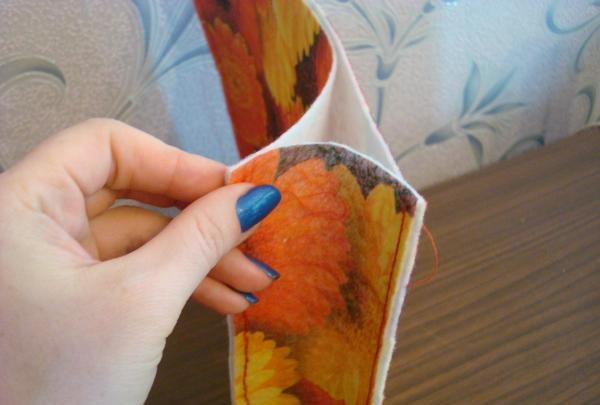
9. At this stage you need to think about the handle. You can sew it from any material that matches the color, or crochet a strip, or find an old unnecessary belt.
The demo uses a leatherette strap that is long enough to make a handle for a bag.
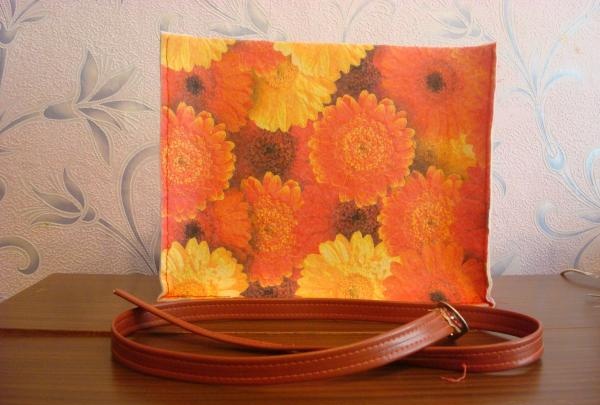
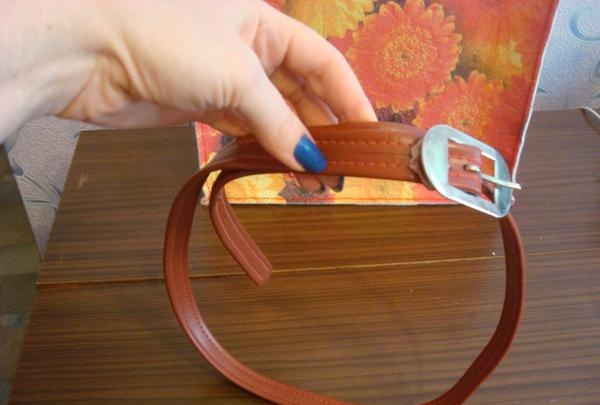
The matter remains small. You need to use clothespins to try different length variations with the belt, choose the option you like, then cut off the buckle and sew it to the bag.The whole belt will make one long handle, which will allow you to carry the bag over your shoulder, or two short ones for carrying it in your hands.
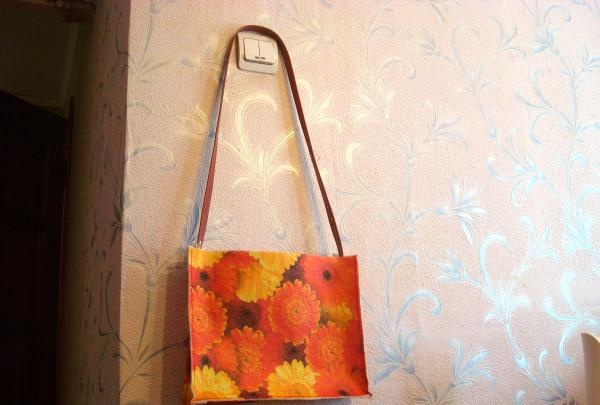
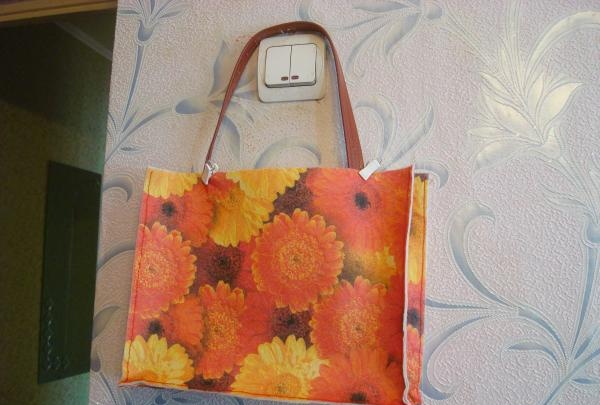
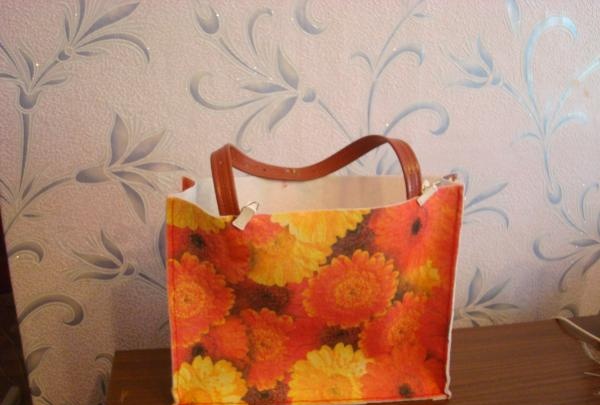
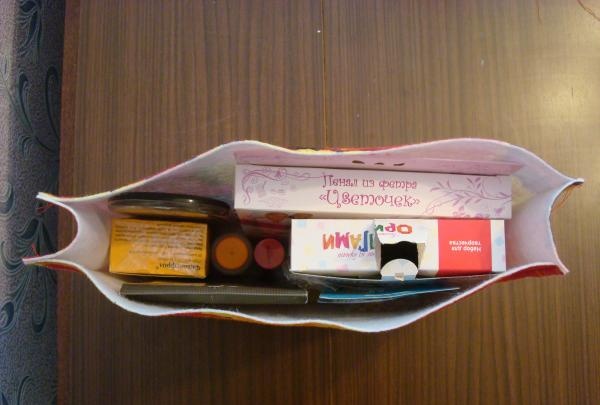
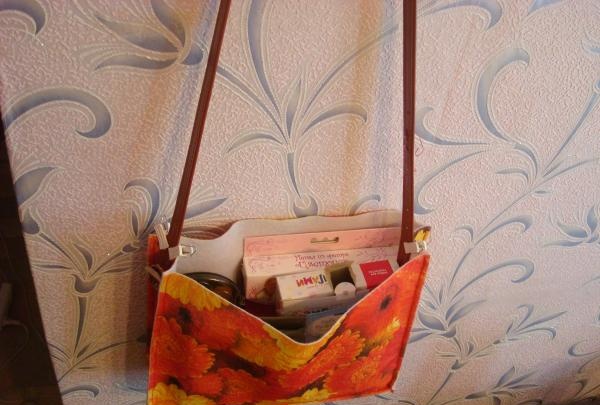
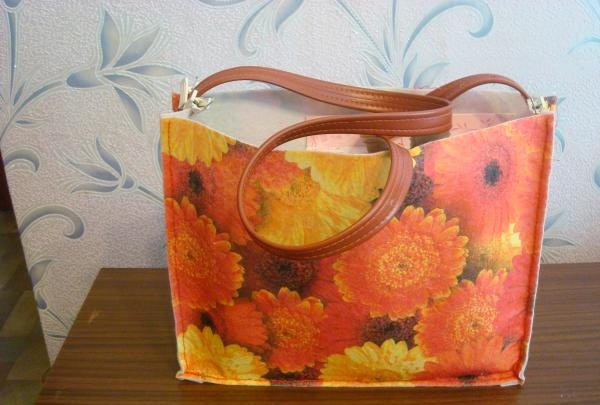
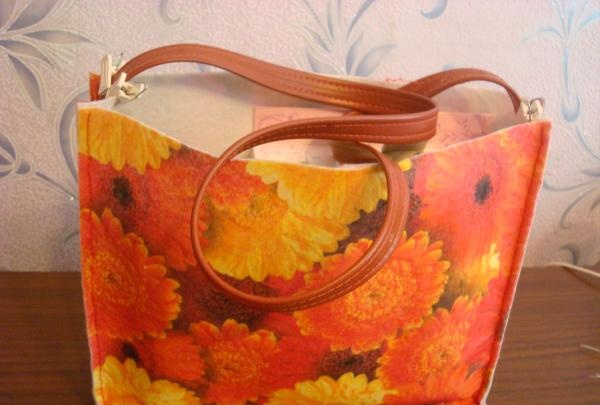
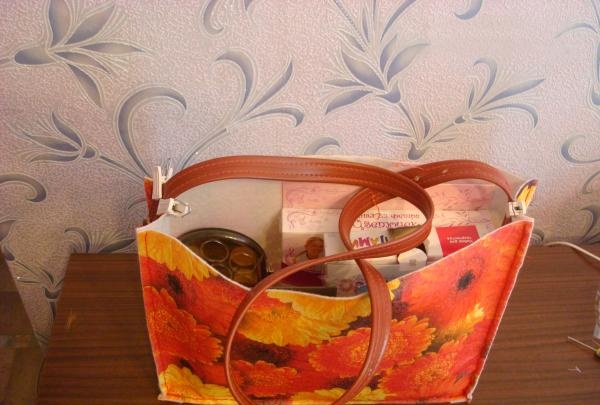
The bag turned out to be quite roomy. It easily holds 2 bottles of kefir, a loaf of bread, 2-3 packs of rice or buckwheat, as well as small boxes or bags, such as tea and candy. With such a bag you can go shopping at a book and stationery store and buy all the items you need for school.
Thick felt is suitable as a material, which allows you to minimize the time spent on processing the edges from sprinkling. If there is no felt, you can replace it with any synthetic analogue.
The bag shown in the example is made from a thick synthetic rug, which was purchased at a well-known store with a fixed price.




In addition to the material you will need:
a ruler, a thimble, a sewing machine or a needle, clothespins or needles for clamping the material, a pencil or soap, threads that match the color, scissors for the material, an old belt as a future handle or you will have to additionally sew (knit) it.
The mat used had dimensions of 40*60 cm, which gave the bag a medium size.
Actions:
1. You need to fold the material in half so that the ends match. The wrong side should face inward. For convenience, it is better to fix the edges.

2. You need to decide on the width of the future bag and cut strips from the edges of the material for the side parts and bottom.In the example, strips of 7 cm were used. 7 cm were measured in the side edge, and 3.5 cm in the lower part, on the fold, since when straightened the strip turns out to be 7 cm. When cutting the strip from the bottom, it is better to secure the material with clothespins.








3. At this stage, the side parts are sewn on. The strip is applied to the material so that the edges meet on all sides as in the photograph.



The parts are fixed with clothespins.

4. Sew the pieces together.


5. Similarly, secure the material with clothespins and sew the parts on the other side.


If your machine breaks down while sewing parts, it’s not a problem. You can continue working with a simple needle and thread, using a special hand stitching technique that imitates machine stitching.




6. On the second side, the parts are sewn together in the same way.





The result was a box without a bottom.



7. Now you need to sew the bottom to the bag using the side parts technique.







Thanks to the dense material, the bag holds its shape well.




8. There are extra centimeters of fabric left on the sides that need to be folded and hemmed if this is the bottom of the bag.











You don’t have to bend the top, but simply cut it off. The material still does not require overcasting, because it does not fray.




9. At this stage you need to think about the handle. You can sew it from any material that matches the color, or crochet a strip, or find an old unnecessary belt.
The demo uses a leatherette strap that is long enough to make a handle for a bag.


The matter remains small. You need to use clothespins to try different length variations with the belt, choose the option you like, then cut off the buckle and sew it to the bag.The whole belt will make one long handle, which will allow you to carry the bag over your shoulder, or two short ones for carrying it in your hands.








The bag turned out to be quite roomy. It easily holds 2 bottles of kefir, a loaf of bread, 2-3 packs of rice or buckwheat, as well as small boxes or bags, such as tea and candy. With such a bag you can go shopping at a book and stationery store and buy all the items you need for school.
Similar master classes
Particularly interesting
Comments (0)

